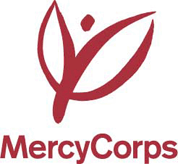by Kristen Pavón
You may have heard about the debate brewing over unpaid internships (mainly in the for-profit world). What’s that? No, you haven’t? Ok, I’ll fill you in.
Because of the economy, the numbers of unpaid internships are on the rise and more and more people are stepping up and a) suing their former employers, b) calling unpaid internships at for-profit organizations illegal, unfair and exploitative, or c) fighting the push back and are lauding these opportunities as a win-win for all parties involved.
The distinction between for-profit and non-profit/government is made because Department of Labor standards for unpaid internships only applies to for-profit companies. Employers must meet the following criteria in order to have an unpaid intern (from employment attorney Camille Olson’s Room for Debate post):
• the training is comparable to that given at a vocational school;
• the training must primarily be for the benefit of the student;
• the student must not replace a regular employee;
• the employer cannot immediately benefit from the student’s activities (for example, the intern cannot deliver mail, sort files, conduct market research, write reports, schedule interviews, or perform any other work that assists the employer in running its business unless the benefit received by the employer is outweighed by the training time that is provided to the intern);
• there can be no promise of a job following the training;
• and both the employer and the student understand that no wages will be paid.
This week, contributors gave their opinion for the New York Times’s Room for Debate . Among the five contributors was David Lat, founder of Above the Law. He was the only contributor who had experience in an unpaid public service law opportunity and because of that, I was interested in hearing his thoughts on the subject.
Lat interned with the federal prosecutors office in New Jersey and while he didn’t get a paid position with the office immediately, he did work there later on (I know this because he and researcher and author of Intern Nation Ross Perlin were guests on Minnesota Public Radio on Tuesday).
Lat is in the answer “c” group — he believes unpaid internships are win-win. His only caveats are contract-based — the unpaid internship needs to be mutually beneficial and entered into freely by both parties.
I’m inclined to agree — in the public service/non-profit realm. While I do feel the unpaid interns’ pain on the cash-flow front, the experience I came away with was worth it. All of the orgs I worked for had structured or semi-structured intern/clerk programs and the attorneys were willing and able to teach me — this makes a huge difference when deciding whether or not to take an unpaid position.
Aside from practical legal skills, I also left organizations having made strong connections with public interest attorneys, which to this day I’ve found to be completely invaluable.
I know that if a position were to open up at any of the organizations I interned with, I would be a top (if not the) candidate for the job because they are familiar with me, my work ethic and the quality of my work product.
My advice is this: do your homework when looking at unpaid positions. You want to make sure it will compensate you in ways other than monetarily — ask questions about the internship structure, work space, supervising attorneys, mentoring, etc.
Where do you land on this issue? A, B or C?




 legal interns for the Summer of 2012! The Office of the General Counsel runs a legal internship program to educate and train promising law students or in the areas of internet law and free knowledge organizations. The interns would work 40 hours per week at the Wikimedia Foundation’s downtown San Francisco office. The Wikimedia Foundation faces a myriad of legal issues ranging from complex copyright questions to international freedom of speech issues to mobile development to internal corporate compliance.
legal interns for the Summer of 2012! The Office of the General Counsel runs a legal internship program to educate and train promising law students or in the areas of internet law and free knowledge organizations. The interns would work 40 hours per week at the Wikimedia Foundation’s downtown San Francisco office. The Wikimedia Foundation faces a myriad of legal issues ranging from complex copyright questions to international freedom of speech issues to mobile development to internal corporate compliance.